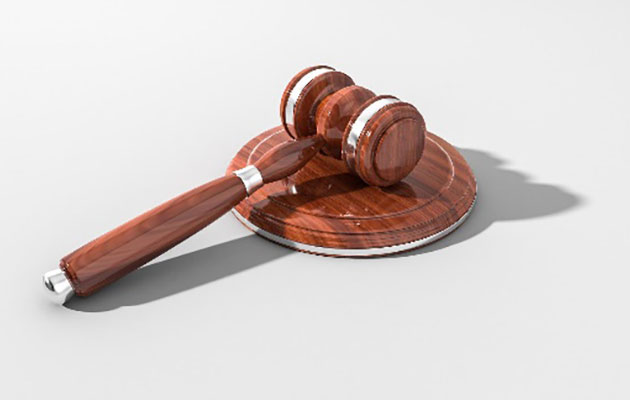-
Articles
The 2022 updated Customs Department Notification on the Control Measures for the Export, Import and Transit of Trademark and Copyright infringing Goods in Thailand
Effective as of 29 July 2022, the Customs Department has announced the updated Customs Department Notification No. 106/2565 on the Control Measures for the Export, Import and Transit of Trademark and Copyright infringing Goods in Thailand (the “Notification”). Following the international standard, this Notification provides several updates to Customs and border protections against trademark and copyright infringing goods, as follows:
Thai Customs IPR Recordation Systems (TCIRs)
Trademark or Copyright owners, or their representatives, can file a recordal application for trademark or copyright with The Thai Customs IPR Recordation Systems (TCIRs). This database helps Customs Officers; if they find any potentially infringing goods, they can use information in the database to determine whether or not the goods being exported, imported or transited into Thailand are counterfeit goods.
Previously, the Customs and border control measures only allowed Customs Officers to seize infringing goods when the owners or their representatives of such goods had notified them, on a case-by-case basis. This updated Notification allows Customs Officers to seize potentially counterfeit goods if there are reasonable grounds to believe they infringes a trademark and/or copyright.
The recordal application requires a trademark to be registered in Thailand for the goods of interest. However, whilst not absolutely necessary, Customs Officers suggest it would be helpful if the owner also has a Thai copyright recordation. The application takes approximately 1-2 months to be recorded. After the acceptance, it will be effective for a period of three years or until the expiry date of such trademark/copyright (whichever comes first). This recordal application is renewable for an extension period of three years.
Customs Enforcement
Once the Customs Officers deem there to be reasonable grounds to believe that the goods being imported, exported or transited from or into Thailand are trademark/copyright infringing goods, they will seize the goods and notify both the trademark/copyright owner and the exporter/importer/transit requester.
Based on current practices, Customs Officers informed us that once the seizure is complete, they will still require the owner to check and confirm whether the seized goods infringe their trademark or copyright, and may also request the owner to enter into legal proceeding as a co-plaintiff or witness, if necessary.
On the other hand, an exporter/importer/transit requester is eligible to oppose the seizure based on the grounds that the goods do not infringe upon a trademark or copyright of any person. In such case, an owner who wishes to assert its rights is required to submit a confirmation letter to assert such rights, as well as a confirmation letter requesting to proceed with legal actions within three days from receipt of the notification (extendible up to 10 days). Customs Officers may order a trademark/copyright owner to take out cargo insurance If the exporter/importer/transit requester who filed the opposition and the trademark/copyright owner did not submit confirmation letters, Customs Officers may discharge the goods.
Inspection Request Against Potentially Infringing Goods on a case-by-case basis
Similar to the previous procedure, if a trademark/copyright owner believes there are reasonable grounds to doubt that the specific goods being imported, exported or transited from or into Thailand infringe upon such person’s trademark/copyright; they can file a letter requesting to inspect such goods on a case-by-case basis, without requiring a trademark/copyright owner to file a recordal application beforehand.
Under this option, if Customs Officers accept the request, they will seize the goods and summons a trademark/copyright owner for inspection within 24 hours from receipt of the notification; this period is non-extendible. The Customs Officers may also discharge the goods if a trademark/copyright owner fails to attend to the inspection.
After a trademark/copyright owner has attended the inspection, the owner is always required to submit a confirmation letter to assert the right, as well as a confirmation letter requesting to proceed with legal actions within three days from receipt of the notification. An exporter/importer/transit requester is eligible to oppose the seizure based on the grounds the goods do not infringe upon a trademark or copyright of any person. The Customs Officers may discharge the goods if a trademark/copyright owner fails to submit the confirmation letters.
This poses a major difference in comparison with the procedure under the TCIRs recordal, because an owner is always required to submit the confirmation letters despite an exporter/importer/transit requester pleading guilty; whereas, under the TCIRs procedure, an owner is required to submit the confirmation letters only if an exporter/importer/transit requester opposes the seizure.
For your easy reference, please see the simplified procedures, as follows:


Conclusion
In short, under this Notification. Customs Officers help the IP owner to monitor trademark and copyright infringing goods from being imported, exported or transited from or into Thailand. They will also seize the goods and then notify the owners once the goods are seized.
This updated Notification is a major improvement for Thai-IP protection, as well as Customs and border control because it encourages IP owners to seek protection in Thailand and helps to prevent any import, export and transit of infringing goods. This Notification also provides clearer procedures and relevant application forms, as well as the scope of powers given to the Customs officers and IP owners.
We recommend IP owners who have not yet filed a recordal, or have filed a recordal but under the previous regulations, to consider filing or re-filing a fresh recordal in order to update and fully protect your IP Rights in Thailand. In such regard, our firm would be pleased to assist.
Should you have any questions or require any further information, please do not hesitate to contact our IP&IT team.








Pavinee is a leading expert in intellectual property (IP) law. She joined the Intellectual Property Practice Group of SCL Law Group (currently known as SCL Nishimura & Asahi) as an associate upon its formation in 2005. Prior to that, Pavinee was an in-house legal counsel at many companies where she gained extensive hands-on experience within general law practice, IP and e-commerce related matters. She also gained comprehensive knowledge of contracts and telecommunications working with government agencies while she was an in-house legal counsel. Pavinee was a guest lecturer and speaker on IP and information law at various forums. Currently, Pavinee routinely advises major clients on matters relating to trademark and patent registrations, copyright recordation, license agreements, as well as trademark, patent and copyright infringement. Versatile and keen, she also assists with overseas trademark and patent registration applications and acts as counsel providing expert guidance to clients throughout IP enforcement process and litigation proceedings. She has been consistently consulted with on cases involving electronic trade and commerce, domain name registrations and personal data and privacy protection. Representing numerous international and domestic organizations in both public and private organizations, Pavinee takes advantage of a refined understanding of IP prosecutions and commercial risk to deliver to the clients borderless and practical legal advice based upon reliable and comprehensive understanding of the laws, regulations and best practices in Thailand. With her comprehensive knowledge and extensive experience, she is well-equipped to meet the clients’ diverse needs whereby she tailors her legal service and professional advice to suit the particular needs of each client.